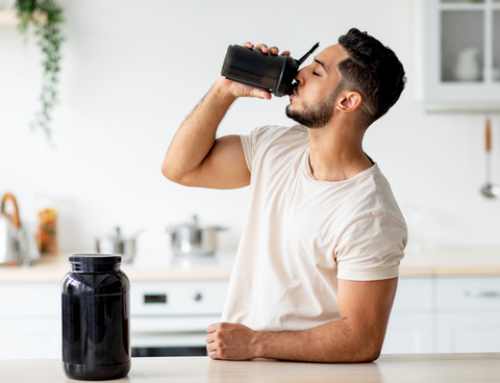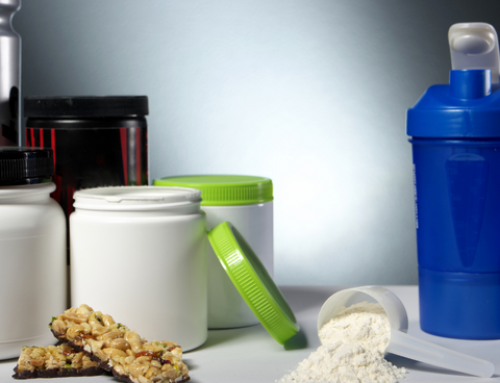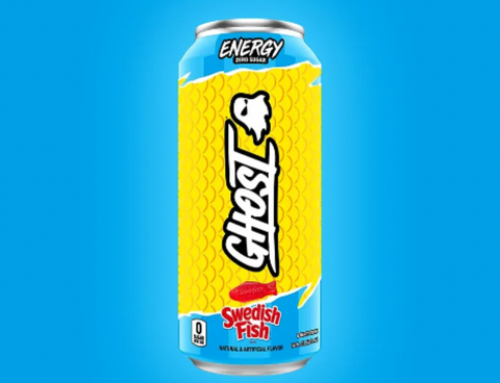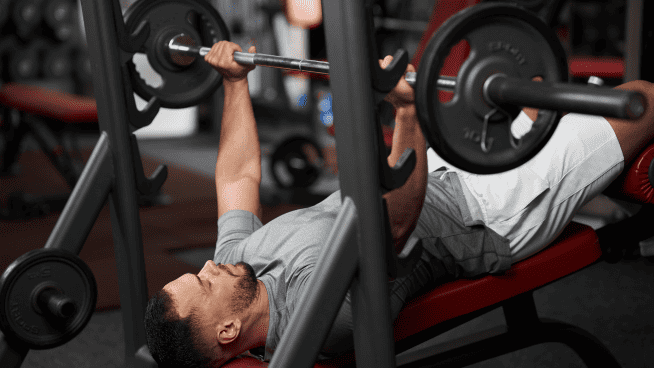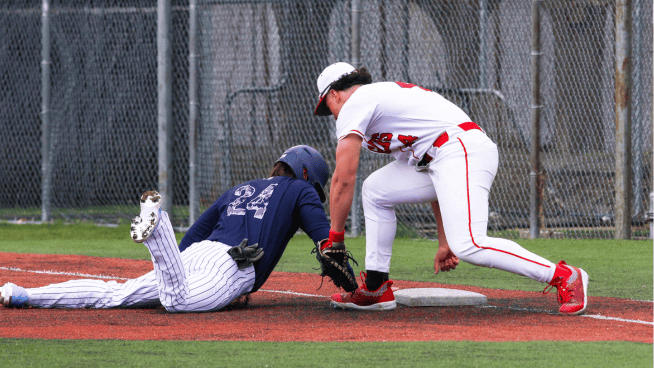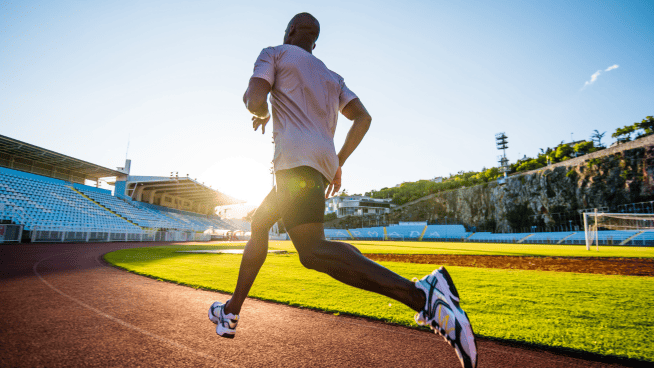Importance of glutamine supplements
There are no guarantees, but Glutamine is scientifically proven to improve recovery and counter the stress that makes our bodies sore.
By: Dean Ochi, ATC, CSCS
SORE. It’s the four-letter word of athletics. Being sore prevents peak performance, can lead to injury and diminishes training results. In other words, soreness is the enemy of execution.
We try it all—ice, the warm whirlpool, massage therapy and anything else we think might help. The results are mixed. Some of the techniques effectively reduce soreness, but most of the time, no matter what we do, we still end up with that common burn. It turns out that, as with most major problems, we have to attack soreness at its source.
Usually, by the time we ice or hit the whirlpool, it’s too late. The mechanisms in our body that produce soreness are already at work. The sports supplement Glutamine (or L-Glutamine) may be a new answer. There are no guarantees, but Glutamine is scientifcally proven to improve recovery and counter the stress that makes our bodies sore. The facts follow.
Q: What is Glutamine?
A: Glutamine is a non-essential amino acid. Our bodies are able to produce Glutamine in small amounts. Glutamine is the most abundant amino acid in our bodies. It constitutes about 60 percent of the amino acid pool.
Q: What does Glutamine do?
A: The main functions of Glutamine are 1) to transfer nitrogen between organs (involving the utilization of protein); 2) to act as a fuel source for the immune system; and 3) to regulate the building-up or breaking down of protein.
Q: How can Glutamine prevent soreness?
A: Glutamine helps our body recover after a stress, such as exercise, is placed on it. When the stress placed on the body becomes too great, the body becomes sore, unless Glutamine levels are increased.
Q: Which athletes can benefit most from Glutamine supplementation?
A: Any athlete will benefit from the supplementation of Glutamine. In any athletic event, stress is placed on the body. Glutamine counters the stress and aids the body’s recovery, thereby preventing soreness.
Q: In general, when should an athlete take Glutamine?
A: There is no exact time in the day in which an athlete needs to supplement Glutamine. But, if an athlete takes Glutamine to recover from a stress and prevent soreness, then it would be best to take it after exercise.
Q: In general, how much Glutamine should be consumed per day?
A: The amount of Glutamine needed depends on body size and the exercise intensity or stress placed on the body. In other words, the bigger the athlete and the harder the exercise—the more Glutamine needed. The usual Glutamine dosage is between 5 to 10 grams per day. The 5-gram dosage should be suffcient for those individuals weighing up to about 200 pounds who expose their bodies to moderate stress from exercise.
Q: How should athletes evaluate and choose between Glutamine products?
A: As we know, our nation’s supplement manufacturers are not subject to FDA regulation. So, a supplement claiming to be 100-percent pure Glutamine or L-Glutamine may be bogus. It is best to buy from reputable companies that have their products sent to independent labs to be tested for purity and effectiveness. Go to each company Web site to find out if relevant Glutamine products are backed by independent research.
Q: Are there any known side effects associated with Glutamine use?
A: There are no known side effects of Glutamine supplementation. Glutamine is produced naturally by the body. Athletes just need more than the average person to counter the stress placed on their bodies from intense exercise.
RECOMMENDED FOR YOU
MOST POPULAR
Importance of glutamine supplements
There are no guarantees, but Glutamine is scientifically proven to improve recovery and counter the stress that makes our bodies sore.
By: Dean Ochi, ATC, CSCS
SORE. It’s the four-letter word of athletics. Being sore prevents peak performance, can lead to injury and diminishes training results. In other words, soreness is the enemy of execution.
We try it all—ice, the warm whirlpool, massage therapy and anything else we think might help. The results are mixed. Some of the techniques effectively reduce soreness, but most of the time, no matter what we do, we still end up with that common burn. It turns out that, as with most major problems, we have to attack soreness at its source.
Usually, by the time we ice or hit the whirlpool, it’s too late. The mechanisms in our body that produce soreness are already at work. The sports supplement Glutamine (or L-Glutamine) may be a new answer. There are no guarantees, but Glutamine is scientifcally proven to improve recovery and counter the stress that makes our bodies sore. The facts follow.
Q: What is Glutamine?
A: Glutamine is a non-essential amino acid. Our bodies are able to produce Glutamine in small amounts. Glutamine is the most abundant amino acid in our bodies. It constitutes about 60 percent of the amino acid pool.
Q: What does Glutamine do?
A: The main functions of Glutamine are 1) to transfer nitrogen between organs (involving the utilization of protein); 2) to act as a fuel source for the immune system; and 3) to regulate the building-up or breaking down of protein.
Q: How can Glutamine prevent soreness?
A: Glutamine helps our body recover after a stress, such as exercise, is placed on it. When the stress placed on the body becomes too great, the body becomes sore, unless Glutamine levels are increased.
Q: Which athletes can benefit most from Glutamine supplementation?
A: Any athlete will benefit from the supplementation of Glutamine. In any athletic event, stress is placed on the body. Glutamine counters the stress and aids the body’s recovery, thereby preventing soreness.
Q: In general, when should an athlete take Glutamine?
A: There is no exact time in the day in which an athlete needs to supplement Glutamine. But, if an athlete takes Glutamine to recover from a stress and prevent soreness, then it would be best to take it after exercise.
Q: In general, how much Glutamine should be consumed per day?
A: The amount of Glutamine needed depends on body size and the exercise intensity or stress placed on the body. In other words, the bigger the athlete and the harder the exercise—the more Glutamine needed. The usual Glutamine dosage is between 5 to 10 grams per day. The 5-gram dosage should be suffcient for those individuals weighing up to about 200 pounds who expose their bodies to moderate stress from exercise.
Q: How should athletes evaluate and choose between Glutamine products?
A: As we know, our nation’s supplement manufacturers are not subject to FDA regulation. So, a supplement claiming to be 100-percent pure Glutamine or L-Glutamine may be bogus. It is best to buy from reputable companies that have their products sent to independent labs to be tested for purity and effectiveness. Go to each company Web site to find out if relevant Glutamine products are backed by independent research.
Q: Are there any known side effects associated with Glutamine use?
A: There are no known side effects of Glutamine supplementation. Glutamine is produced naturally by the body. Athletes just need more than the average person to counter the stress placed on their bodies from intense exercise.


